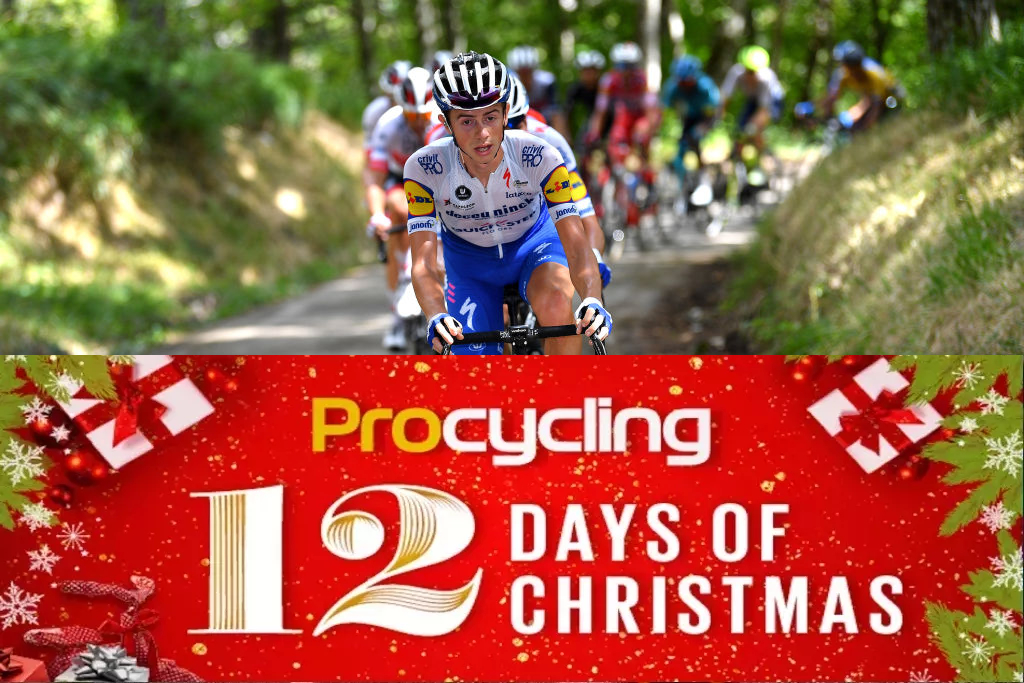James Knox: Poland and the racing restart
Procycling's 12 days of Christmas: 10

Procycling magazine’s 12 days of Christmas revisits some of the highlights from our contributors in the magazine over the last year. James Knox tells us about returning to racing in August at the Tour de Pologne after a 160 day pause due to the pandemic.
James Knox rides for Deceuninck-Quick Step and is one of Procycling’s 2020 diarists. This article was taken from Procycling magazine issue 273 October 2020.
Subscribe to Procycling magazine, right here.
The gap between stage 5 of the UAE Tour and stage 1 of the Tour of Poland was 160 days, but I’m finally up and running. It was quite a wait to get going, but it wasn’t too long before lockdown seemed like a peaceful alternative compared to bike racing.
I don’t think crashes come much more horrific than what happened to Fabio [Jakobsen] in stage 1 of Poland. For anyone watching at home or any riders on the scene I don’t think it’s something you forget quickly and for Fabio he’ll never forget.
I don’t want to weigh into the debate about what happened in the sprint too much, but from my perspective, it being the second time I’ve done this finish, each time the bunch is praying everyone gets across the line safely. I think we have to acknowledge that we shouldn’t be racing to the line at almost 90kp/h. We’re just using a bit of common sense: this seems totally unnecessary and unacceptable. It’s the most dangerous moment of the race.
Although riders are forced to take huge risks in sprint finishes all the time to squeeze through gaps, as this is bike racing and it’s part of the sport, we don’t need to make it more dangerous than it already is. Everything is amplified at that speed, there’s no time to react and small movements on the bike have much bigger ripples across the road.
Get The Leadout Newsletter
The latest race content, interviews, features, reviews and expert buying guides, direct to your inbox!
Then also crashing at that speed and the impact... everything is worse. Add in the disturbing fact that the barriers weren’t built for purpose in this instance and it’s incredibly difficult to get your head around. I hope something can change in response to what happened to Fabio but I don’t have much hope, the way things are run.
Sadly the controversy didn’t stop there, with riders making a protest on stage 5 of the Critérium du Dauphiné at the 12km downhill start on the previous day where numerous riders crashed. And of course the nasty crash of Remco [Evenepoel] in Il Lombardia.
It’s been a difficult period for the team with two of our biggest riders receiving such awful injuries, and with Yves Lampaert and Mattia Cattaneo on top of that. We hope that the guys can be back soon, but for Remco and for Fabio especially it will be a long and difficult recovery, and we can only hope for the best.
It’s a difficult part of the sport, which to some degree you just can’t think about. Injuries and crashes happen all the time, and it would be debilitating riding around aware of the risk you are in at any given moment. That’s not to say there are not moments where you don’t think, ‘What the **** are you doing?’ mid-race, risking an accident.
Back to the racing side of things, and it hasn’t been the greatest restart to the season.
I never particularly love getting going again, but this came as a nasty shock. Poland was difficult, as I quickly realised I didn’t have the legs to do much and did what I could to help Remco on his way to an outstanding victory and take the GC, and keeping the break in check to have a go with Ballerini for the sprints.
He took them in impressive fashion as a rider who started the race as second to last leadout man. From there it was a quick turnaround to the Dauphiné. I could have done with a couple of extra days but truth be told the race was just nuts. Every stage was flat out and the pace was relentless. I was barely surviving in the group to make the first gruppetto on two or three of the days. Hopefully things get easier from here! JK